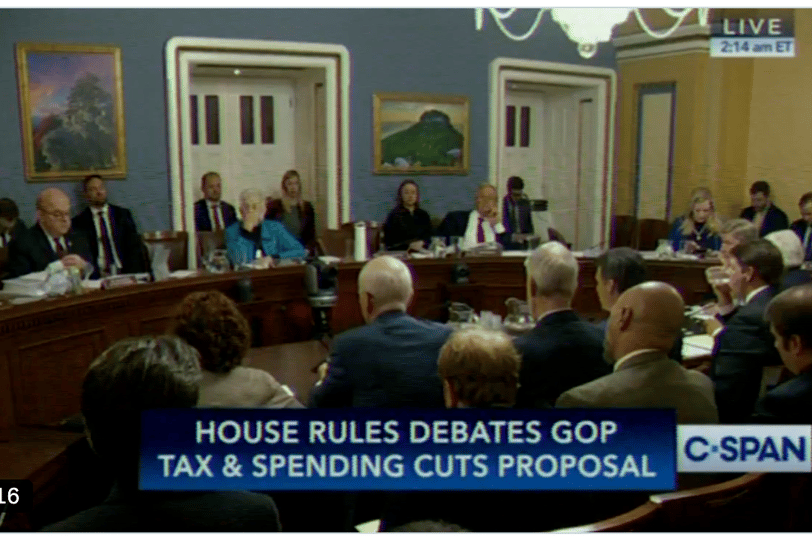The Hidden Cost of Tax Breaks: How GOP Budget Cuts Threaten Medicare
5/22/20253 min read


The Hidden Cost of Tax Breaks: How GOP Budget Cuts Threaten Medicare
Introduction: A Shocking Revelation in Congress
In a dramatic turn of events during a House Rules Committee debate, Congressman Brendan Boyle dropped a bombshell: the GOP's latest tax and spending cuts proposal would trigger over $500 billion in automatic cuts to Medicare. This revelation, confirmed by the nonpartisan Congressional Budget Office (CBO), exposes a stark contradiction to earlier promises from Republican leaders, including President Trump, who assured the public that Medicare would remain untouched. But how did we get here, and what does it mean for millions of Americans relying on this critical program?
The PAYGO Trap: How Deficit Rules Backfire
At the heart of this issue is the Statutory Pay-As-You-Go (PAYGO) Act, a law designed to ensure that new legislation doesn't increase the federal deficit without corresponding offsets. In theory, it's a fiscal safeguard. In practice, it's a ticking time bomb for programs like Medicare. The GOP's bill, laden with tax breaks for the wealthy and spending cuts elsewhere, pushes the deficit over the edge, triggering automatic sequestration cuts to Medicare—cuts that could total $535 billion over the next decade.
This isn't just a numbers game. It's a direct threat to the health and well-being of seniors, veterans, and disabled Americans who depend on Medicare. And here's the kicker: these cuts aren't even part of the bill's explicit provisions. They're a byproduct of fiscal rules that Republicans themselves set up, now backfiring spectacularly.
Breaking Promises: From Assurance to Betrayal
Remember when President Trump campaigned on protecting Medicare? Or when Republican leaders insisted that their budget wouldn't harm this sacred cow of American social programs? Those promises are now dust in the wind. The CBO's confirmation that the bill triggers massive Medicare cuts is a betrayal of trust, especially for the millions who voted based on assurances that their healthcare wouldn't be compromised.
The debate, captured in a video shared by Aaron Rupar, shows Congressman Boyle's frustration and disbelief. "This is really breaking news," he said, highlighting the irony that despite months of discussion about Medicaid cuts, Medicare was supposedly off the table. Yet, here we are, facing a $535 billion hit to a program that millions rely on for life-saving care.
The Bigger Picture: Class Warfare in Disguise
This isn't just about Medicare. It's part of a broader strategy to shift wealth upward while dismantling the safety net for the most vulnerable. The GOP's budget prioritizes tax breaks for billionaires and corporations, cuts to food assistance, and now, seemingly inevitable cuts to Medicare. It's a classic case of fiscal hypocrisy: explode the deficit with tax cuts for the rich, then use deficit rules to justify slashing programs that help the poor and middle class.
Critics argue this is class warfare, plain and simple. Working-class seniors, many of whom spent decades contributing to the system, are now at risk of losing access to essential healthcare. Meanwhile, the wealthiest Americans reap the benefits of tax policies that further widen the inequality gap. It's a stark reminder of the priorities at play in Washington.
What This Means for You
If you're a Medicare recipient, this should be alarming. Automatic cuts mean fewer resources for doctors, hospitals, and treatments. It could lead to denied care, longer wait times, and a overall decline in the quality of healthcare you receive. For policymakers, it's a wake-up call to reconsider the unintended consequences of fiscal rules like PAYGO when paired with reckless tax policies.
Conclusion: A Call to Action
The GOP's budget bill is a stark reminder of the trade-offs we're facing. Tax breaks for the rich come at a cost, and that cost is borne by the most vulnerable among us. As we move forward, it's crucial to hold our leaders accountable and demand transparency about the real impact of their policies.
Thought-Provoking Questions:
How can we ensure that fiscal responsibility doesn't come at the expense of essential programs like Medicare?
What steps can be taken to protect vulnerable populations from the unintended consequences of deficit rules?
Is it time to reevaluate the PAYGO Act, or are there better ways to balance the budget without harming social programs?
Explore deep insights on current events and growth.
Vision
Truth
hello@insightoutvision.com
+1-2236036419
© 2025. All rights reserved.
